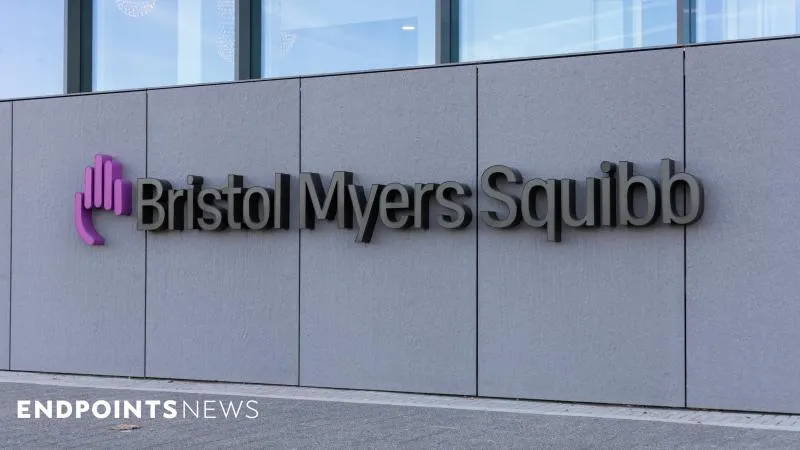
Bristol Myers Squibb Expands and Diversifies RNA and Cell Therapy Portfolio Through Acquisition of Orbital Therapeutics
Bristol Myers Squibb (NYSE: BMY) announced a significant strategic move to strengthen its leadership in the field of cell and gene therapy with the acquisition of Orbital Therapeutics, a privately held biotechnology company at the forefront of developing next-generation RNA medicines. The transaction underscores BMS’s ongoing commitment to innovation in immune modulation, cell therapy, and advanced RNA delivery systems—three pillars that are increasingly central to the future of precision medicine.
Under the terms of the agreement, Bristol Myers Squibb will acquire Orbital for $1.5 billion in cash, subject to customary closing conditions, including clearance under the Hart-Scott-Rodino Antitrust Improvements Act of 1976. Until the transaction is finalized, both companies will continue to operate independently.
Pioneering a New Era in RNA and Cell Therapy
Bristol Orbital Therapeutics has been recognized for its groundbreaking work in reprogramming the immune system in vivo using innovative RNA-based platforms. The company’s core mission has been to harness the precision, control, and flexibility of RNA medicines to address diseases that have historically been difficult to treat using conventional biologics or cell-based modalities.
At the center of Orbital’s research is its proprietary RNA platform that integrates circular and linear RNA engineering, advanced lipid nanoparticle (LNP) delivery, and AI-driven design. This integrated approach enables the development of programmable RNA therapies capable of achieving durable, targeted, and tunable effects—providing an opportunity to reach a wide range of tissues and address complex immune-driven conditions.
The Bristol acquisition provides BMS with direct access to this cutting-edge RNA technology suite, creating opportunities to expand the company’s cell therapy capabilities beyond traditional ex vivo CAR T-cell approaches.
The Promise of In Vivo CAR T
One of the most exciting elements of this acquisition is Orbital’s lead preclinical candidate, OTX-201, an RNA-based immunotherapy currently undergoing IND-enabling studies. OTX-201 employs an optimized circular RNA that encodes a CD19-targeted chimeric antigen receptor (CAR), delivered through targeted lipid nanoparticles.
This in vivo CAR T strategy effectively transforms a patient’s own body into a manufacturing system for CAR T-cells, bypassing the need for complex ex vivo cell manipulation that has traditionally made CAR T therapy costly and logistically challenging. By directly programming immune cells within the body, in vivo CAR T therapy could substantially reduce treatment burden, manufacturing time, and costs, while improving scalability and accessibility for patients.
The Bristol innovation aligns seamlessly with Bristol Myers Squibb’s goal of improving access to transformative therapies in both oncology and autoimmune diseases.
Dr. Robert Plenge, Executive Vice President and Chief Research Officer at BMS, described the acquisition as a milestone in the evolution of cell therapy:
“In vivo CAR T represents a novel treatment approach that could redefine how we treat autoimmune diseases. This acquisition enhances our robust cell therapy research platform and provides an opportunity to advance a potential best-in-class therapy designed to deplete autoreactive B cells and reset the immune system. We are excited by the promise this holds for patients with autoimmune diseases who are waiting for better options.”
Expanding Access and Redefining Cell Therapy
Bristol Myers Squibb has been a global leader in the commercialization of CAR T-cell therapies, with approved products such as Abecma (idecabtagene vicleucel) and Breyanzi (lisocabtagene maraleucel). These therapies have demonstrated remarkable efficacy in hematologic malignancies but are limited by their manufacturing complexity and patient eligibility constraints.
With the addition of Orbital’s RNA platform, BMS is poised to reimagine cell therapy accessibility. The in vivo CAR T approach offers the potential to dramatically simplify production by eliminating the need for personalized Bristol manufacturing facilities and autologous cell processing. Instead, a single RNA-based infusion could trigger the body to generate CAR T-cells internally, potentially expanding the patient population eligible for this transformative class of medicines.
Lynelle B. Hoch, President of BMS’s Cell Therapy Organization, emphasized the strategic fit between Orbital’s RNA platform and the company’s long-term vision for immune modulation:
With the acquisition of Orbital Therapeutics and its next-generation RNA platform, we have an incredible opportunity to make CAR T-cell therapy more efficient and accessible to more patients. As a leader in cell therapy, we are uniquely positioned to evaluate multiple platform approaches to induce immune reset in autoimmune diseases and continue to optimize in vivo technology in clinical development.”
This integration of Bristol RNA science with BMS’s established cell therapy infrastructure could catalyze the next major evolution in immune-based therapies—shifting from the complex manufacturing model of ex vivo CAR T toward an RNA-programmed in vivo generation model.
Orbital’s RNA Platform: Bridging RNA and Immunology
Founded with the goal of transforming RNA into a modality capable of addressing diseases beyond the reach of current therapeutics, Orbital Therapeutics has built a highly differentiated platform that merges innovations in RNA design, delivery, and translation control.
Key components of Orbital’s technology include:
- Circular RNA Optimization: Enhancing stability and translation efficiency while minimizing innate immune activation, enabling longer-lasting therapeutic effects compared to linear RNA.
- AI-Driven RNA Design: Leveraging computational tools to predict structure-function relationships and optimize therapeutic payloads for specific disease targets.
- Advanced Lipid Nanoparticle (LNP) Delivery: Engineering tissue-targeted nanoparticles for precise delivery of RNA cargo, maximizing potency while minimizing off-target effects.
- Programmable Immune Reprogramming: Combining RNA payloads and delivery technologies to transiently or permanently modulate immune responses in specific disease settings.
Orbital’s versatile RNA toolkit is applicable not only to cell therapy but also to vaccines, protein replacement therapies, and targeted immunomodulation—domains where BMS has deep therapeutic expertise.
Ron Philip, Chief Executive Officer of Orbital Therapeutics, highlighted the strategic and scientific alignment between the two organizations:

“This agreement with Bristol Myers Squibb, a recognized leader in global medicine, marks a transformational moment for Orbital and the advancement of RNA medicine. Since inception, Orbital has made significant strides developing a differentiated RNA platform designed to enable a new generation of RNA medicines that reach more tissues, address more diseases, and benefit more patients. The promising early data from our lead program, OTX-201, underscore the strength of this approach and the potential of our integrated RNA technologies. Together, we aim to deliver RNA medicines that provide patients with treatments that are simpler, safer, and more accessible compared to today’s complex therapies.”
Strengthening BMS’s Innovation Ecosystem
For Bristol Myers Squibb, the acquisition of Orbital Therapeutics represents more than the addition of a promising platform—it’s a strategic reinforcement of the company’s long-term R&D direction. Over the past decade, BMS has expanded its research footprint across multiple modalities, from traditional small molecules and biologics to advanced modalities such as cell therapy, RNA therapeutics, and gene editing.
The Orbital acquisition builds upon earlier moves that have established BMS as a frontrunner in cell therapy innovation. The integration of Orbital’s RNA expertise will also enhance BMS’s capacity to accelerate programs targeting autoimmune diseases—an area of growing investment and unmet need.
By internalizing Orbital’s RNA platform, BMS gains the ability to:
- Streamline the development of in vivo immune reprogramming therapies.
- Combine RNA-based delivery with BMS’s deep biologics expertise.
- Explore cross-modality synergies in autoimmune, oncology, and inflammatory diseases.
- Expand access to transformative therapies to a wider patient population globally.
Financial and Transaction Details
As part of the agreement, BMS will pay $1.5 billion in cash at closing to acquire Orbital Therapeutics. The closing is subject to customary conditions and regulatory approvals. Upon completion, the transaction will be accounted for as either a business combination or asset acquisition, with the determination to be finalized at the time of closing.
Legal and financial advisors for the transaction include:
- Covington & Burling LLP as legal counsel to Bristol Myers Squibb.
- Centerview Partners LLC as exclusive financial advisor to Orbital Therapeutics.
- Goodwin Procter LLP as legal counsel to Orbital Therapeutics.
With the acquisition of Orbital Therapeutics, Bristol Myers Squibb is positioning itself to lead the next generation of RNA-driven immune therapies. The convergence of Orbital’s RNA technology with BMS’s global scale, cell therapy expertise, and clinical development infrastructure creates a synergistic opportunity to transform how immune-mediated diseases are treated.
If successful, in vivo CAR T therapies like OTX-201 could redefine the therapeutic landscape for autoimmune diseases—achieving immune reset through direct in-body programming, rather than external cell manipulation. For patients, this could mean more accessible, less invasive, and potentially curative treatment options.
As the biopharmaceutical industry continues to evolve, this acquisition stands as a defining moment in the integration of RNA and cell therapy sciences. By bringing Orbital’s innovative platform under its umbrella, Bristol Myers Squibb is not only expanding its technological capabilities but also reaffirming its mission—to transform patients’ lives through science.





